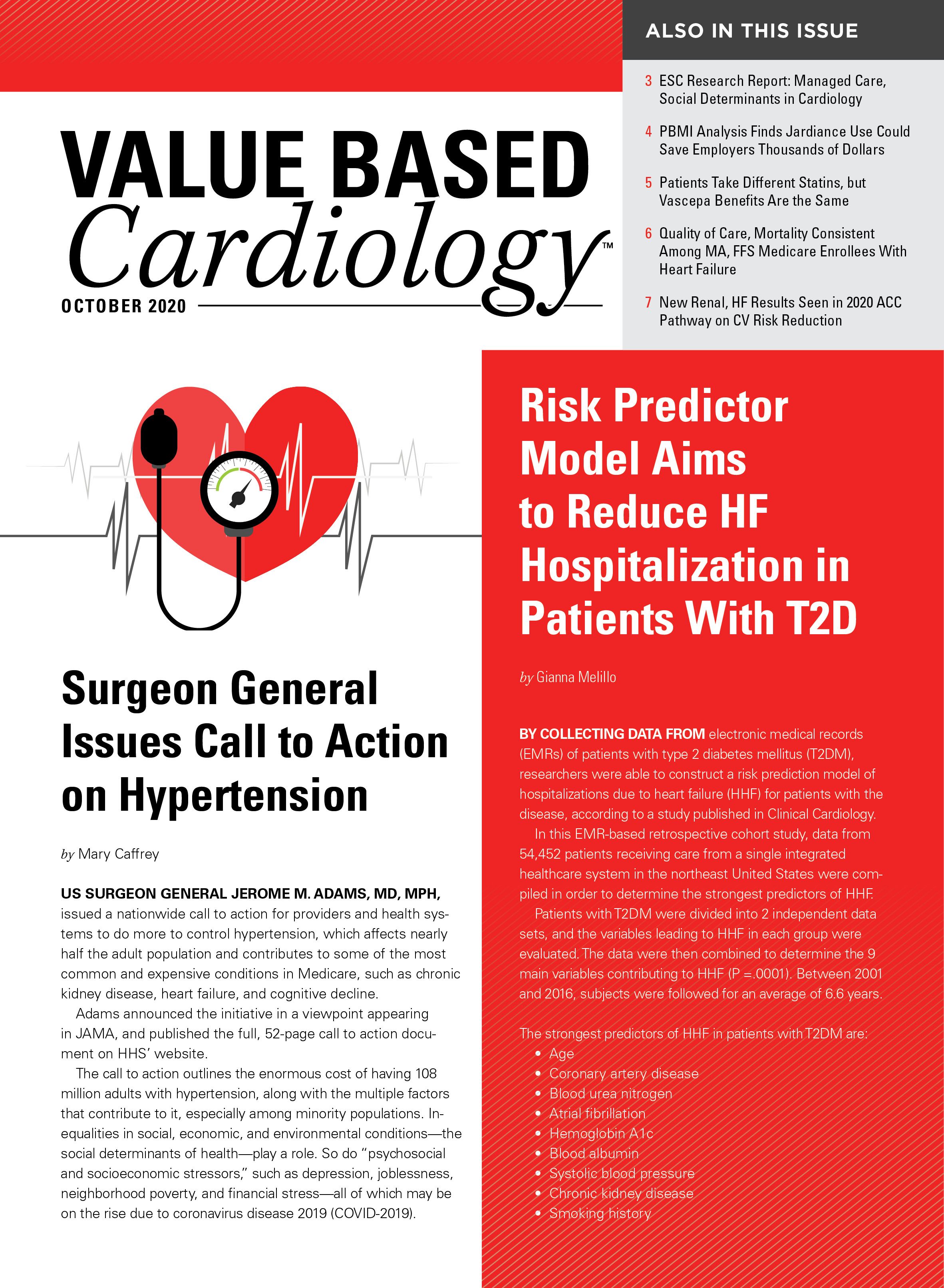- Center on Health Equity & Access
- Clinical
- Health Care Cost
- Health Care Delivery
- Insurance
- Policy
- Technology
- Value-Based Care
Patients Take Different Statins, but Vascepa Benefits Are the Same
A new analysis from the REDUCE-IT trial finds that cardiovascular benefits of Vascepa are consistent no matter what type of statin a patient takes for cholesterol.
The benefits of taking icosapent ethyl, the purified omega-3 fatty acid sold as Vascepa, were consistent across statins of different strengths and types, according to the latest data from the REDUCE-IT study presented during the 2020 Congress of the European Society of Cardiology (ESC), being presented in a virtual format.
Icosapent ethyl, first approved to treat high triglycerides, has since received a cardiovascular (CV) indication after REDUCE-IT showed that a 4g per day dose reduced the risk of first-time CV events by 25% and first and future events by 30%. Subsequent studies have sought to better understand the mechanisms of how icosapent ethyl produces these results.
In this latest round of data from the study, lead study author Deepak Bhatt, MD, MPH, of Brigham and Women’s Hospital Heart & Vascular Center and Harvard Medical School, sought to examine the relationship between low density lipoprotein (LDL) cholesterol pathways and the CV benefits of icosapent ethyl, by examining whether the there were major differences in benefit by statin type or by statin group (lipophilic vs lipophobic); according to the abstract presented at ESC, 96.1% of the patients in the study fell into one of these statin groups.
In an interview, Bhatt told The American Journal of Managed Care® that the analysis further supports the main findings of REDUCE-IT. “We looked at patients who are on really intense statins, things like atorvastatin and rosuvastatin, or more modest types of statins, such as simvastatin or pravastatin,” he said. “We also bunched it by hydrophobic and hydrophilic statins.”
“The bottom line was, any way you sliced it there was a benefit, a consistent benefit favoring icosapent ethyl versus placebo, irrespective of the actual statin type or category of statin.”
Results. CV outcomes were similar across different statin types (interaction, P = .61) and across lipophilic/lipophobic categories (interaction, P = .51). Hazard ratio (HR) results by individual statin type were as follows, all favoring icosapent ethyl (all 95% CI):
- Atorvastatin: HR, 0.80 (0.68-0.94), P = .0054
- Simvastatin: HR, 0.76 (0.64-0.90), P = .0017
- Rosuvastatin: HR, 0.68 (0.54-0.85), P = .0009
- Pravastatin: HR, 0.88 (0.62-1.25), P = .47
Among the 2 main statin groups, the HR on lipophilic statins was 0.78 (0.69-0.87), P < .0001; for lipophobic statins, HR, 0.73 (0.66-0.88), P = .0012.
In the abstract, Bhatt and co-authors wrote that the LDL cholesterol changes and CV risk reduction in the study “appear independent of the type of concomitant statin therapy.”
They concluded, “These data provide clinicians with additional insight regarding concomitant statin therapy considerations when prescribing icosapent ethyl and suggest there are important mechanisms of action for the substantial CV risk reduction observed with icosapent ethyl that are distinct from the LDL receptor pathway.”
Reference
Bhatt DL, Miller M, Steg P, for the REDUCE-IT Investigators. REDUCE-IT outcomes by baseline statin type. Presented at ESC Congress 2020:. Abstract 218514.

The Importance of Examining and Preventing Atrial Fibrillation
August 29th 2023At this year’s American Society for Preventive Cardiology Congress on CVD Prevention, Emelia J. Benjamin, MD, ScM, delivered the Honorary Fellow Award Lecture, “The Imperative to Focus on the Prevention of Atrial Fibrillation,” as the recipient of this year’s Honorary Fellow of the American Society for Preventive Cardiology award.
Listen
Promoting Equity in Public Health: Policy, Investment, and Community Engagement Solutions
June 28th 2022On this episode of Managed Care Cast, we speak with Georges C. Benjamin, MD, executive director of the American Public Health Association, on the core takeaways of his keynote session at AHIP 2022 on public health policy and other solutions to promote equitable health and well-being.
Listen
